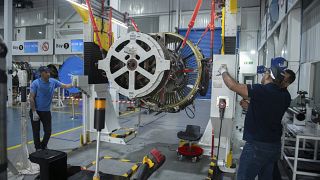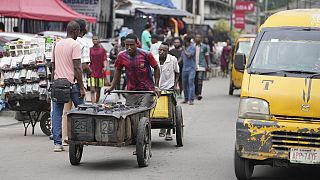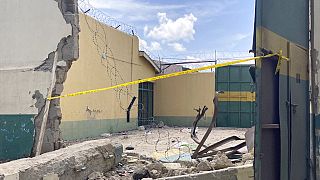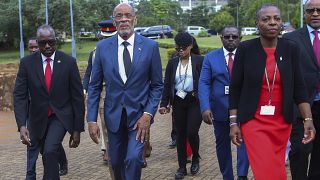Nigeria
The cost of living in Nigeria, Africa’s largest oil producer is becoming high. Falling oil prices and rising inflation is affecting the economy negatively. The economic growth of the country reached 3% in 2015, the lowest rate in over a decade.
In the black market, a dollar is worth 305 naira.
“When we go to buy material, they talk about dollars and Naira going high. Since they buy at at a higher price, they sell at a higher price too . That is why we are lamenting and asking when things will get back to normal in this our country,” a vendor said.
A hair dresser who identifies herself as Moyin said “people are complaining. They say we are expensive and need to reduce the price. That is how we buy from the market.”
The population complaints that rents and food has become expensive.
French wine importers are witnessing falling demand while luxury car dealers and real estate agents are facing a drop in activity.
Some investors anticipate an inevitable devaluation of the naira and expect a clear monetary policy from Nigeria before any commitment.
“The current situation creates a lot of anxiety and uncertainty because nobody knows how to anticipate and everyone complains about the government’s lack of orientation,” Anna Rosenburg, expert in emerging markets for Frontier Strategy Group, said.
Some experts suggest that the inability to generate profit from oil or attract investors could force the country to consider borrowing from abroad to finance ambitious infrastructure projects.
Last year Nigeria announced a record budget of 6.080 trillion naira aimed at stimulating growth by investing in major projects like roads and rail.
The budget relies heavily on borrowing. President Buhari has expressed the possibility of devaluing the naira to lure investors without “killing” the currency in anyway.




![Is Africa’s soil healthy enough for food security? [Business Africa]](https://static.euronews.com/articles/stories/08/39/08/36/320x180_cmsv2_6c750e33-e25d-57d1-a896-b069180361f4-8390836.jpg)







01:47
Environmental Volunteering: Activists gather in Lagos ahead of World Earth Day
00:39
Nigerian chess master plays for 60 hours in bid to set new world record
01:28
Nigeria's crude oil output goes down again in March - OPEC
01:05
A Nigerian chess champion is trying to break the world record for the longest chess marathon
01:02
Pics of the day: April 15, 2024
02:46
Nigeria: chibok abduction anniversary spurs demands for justice